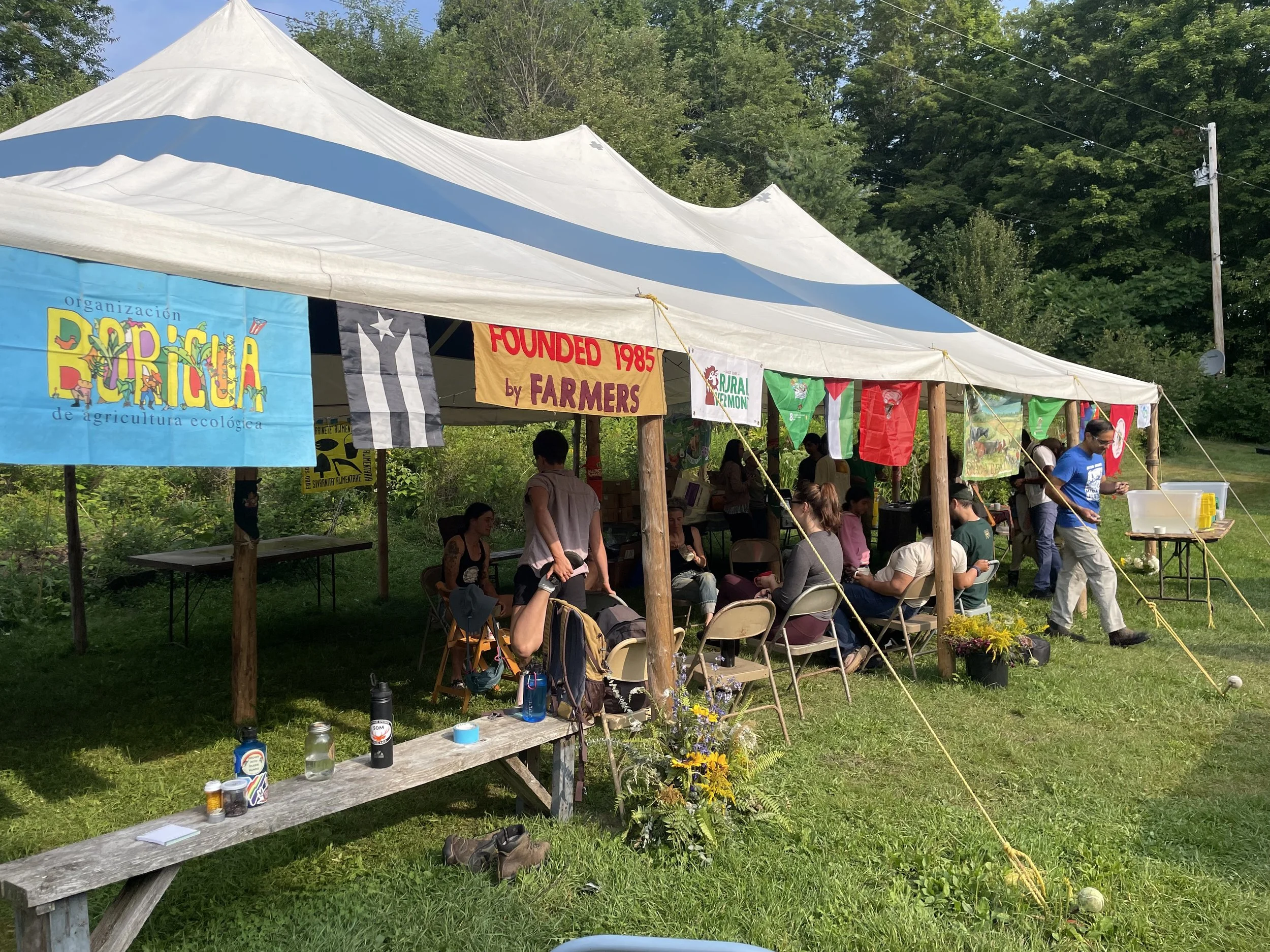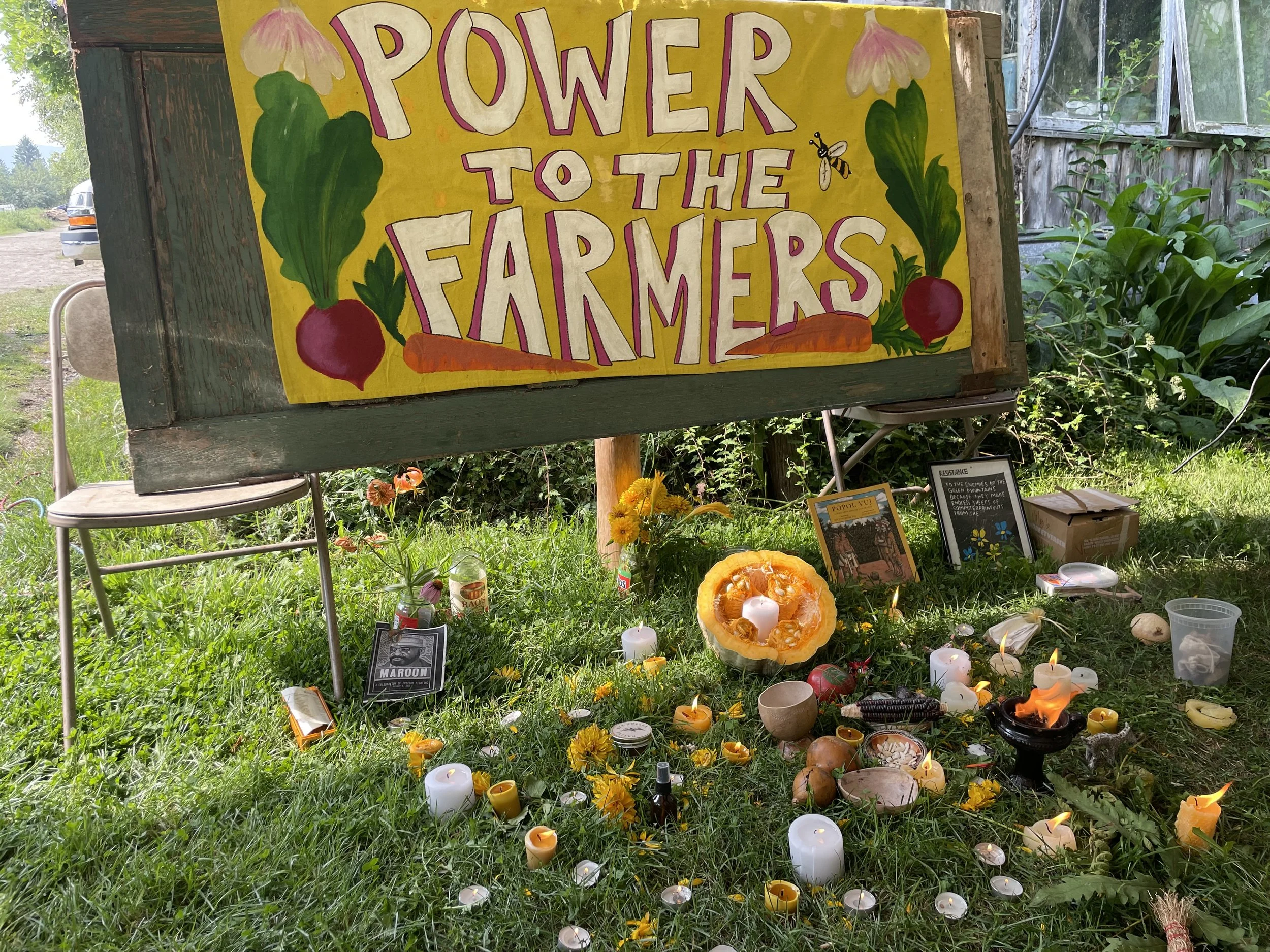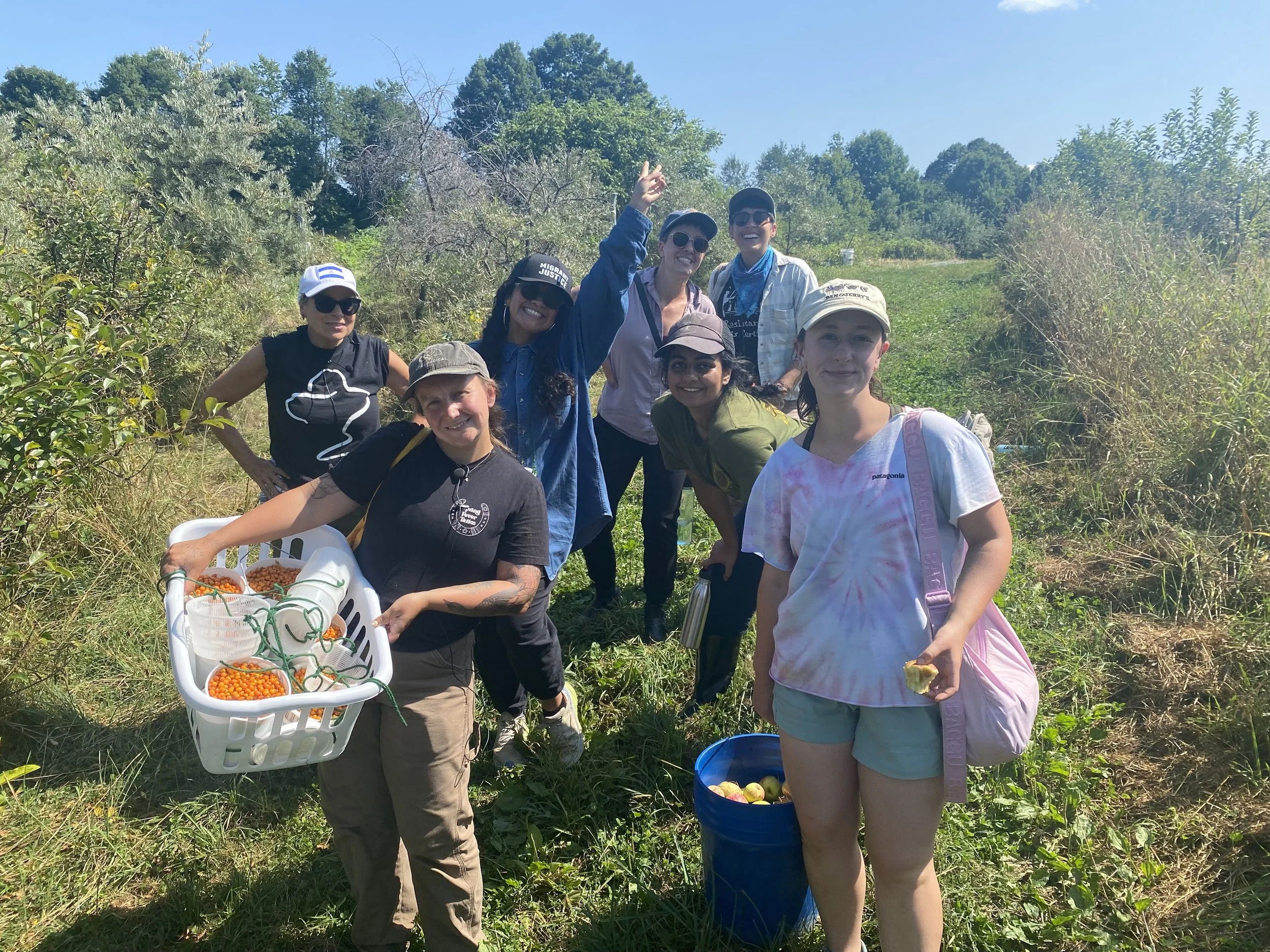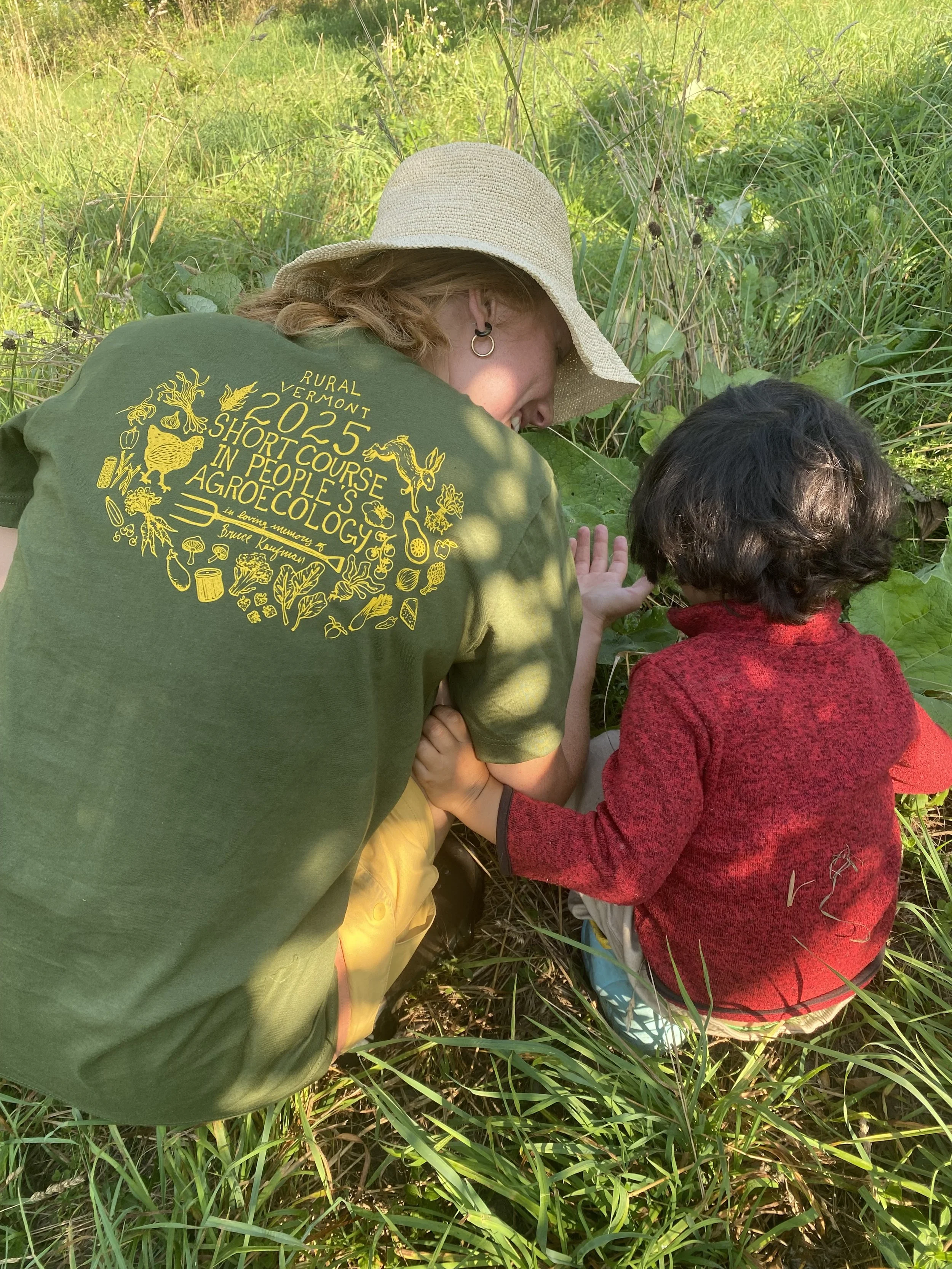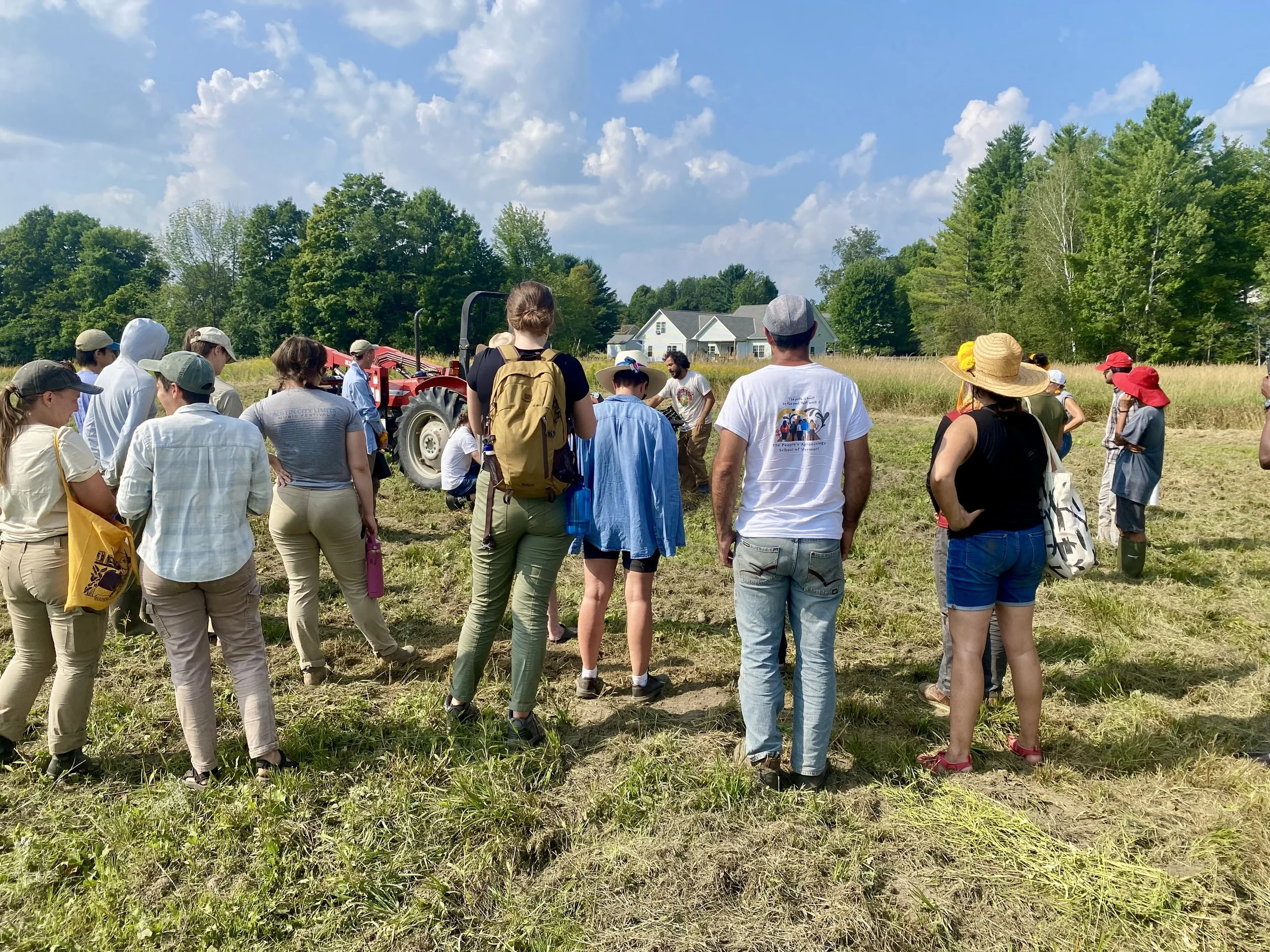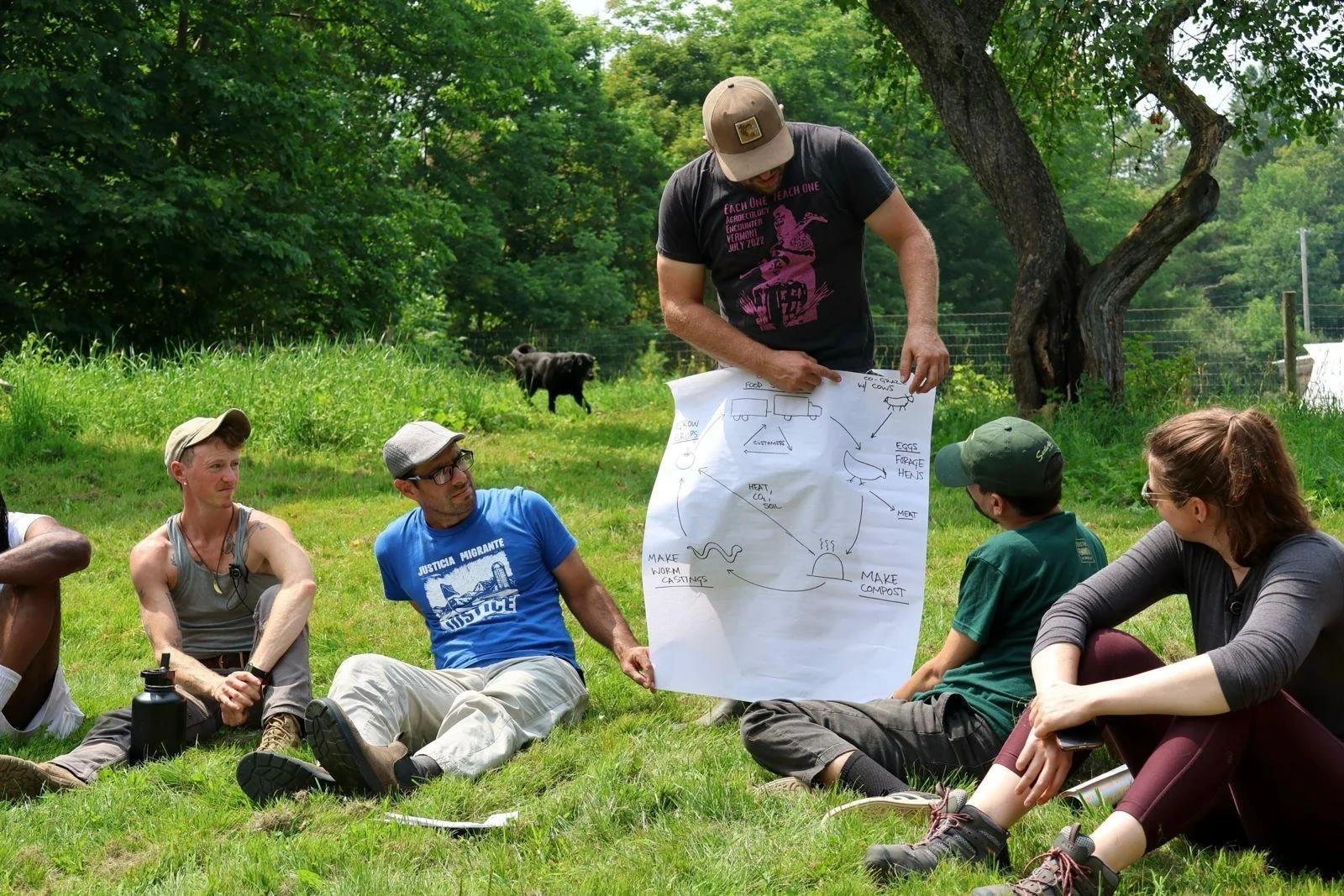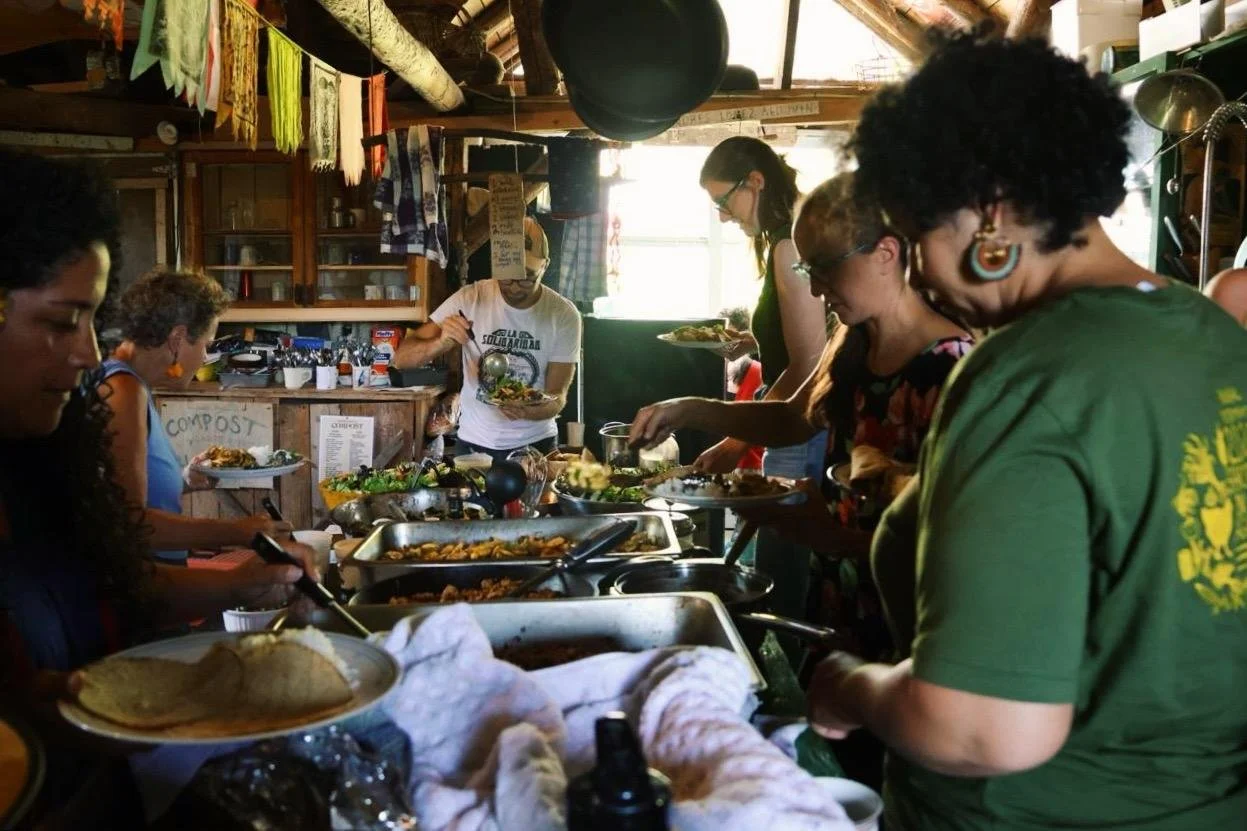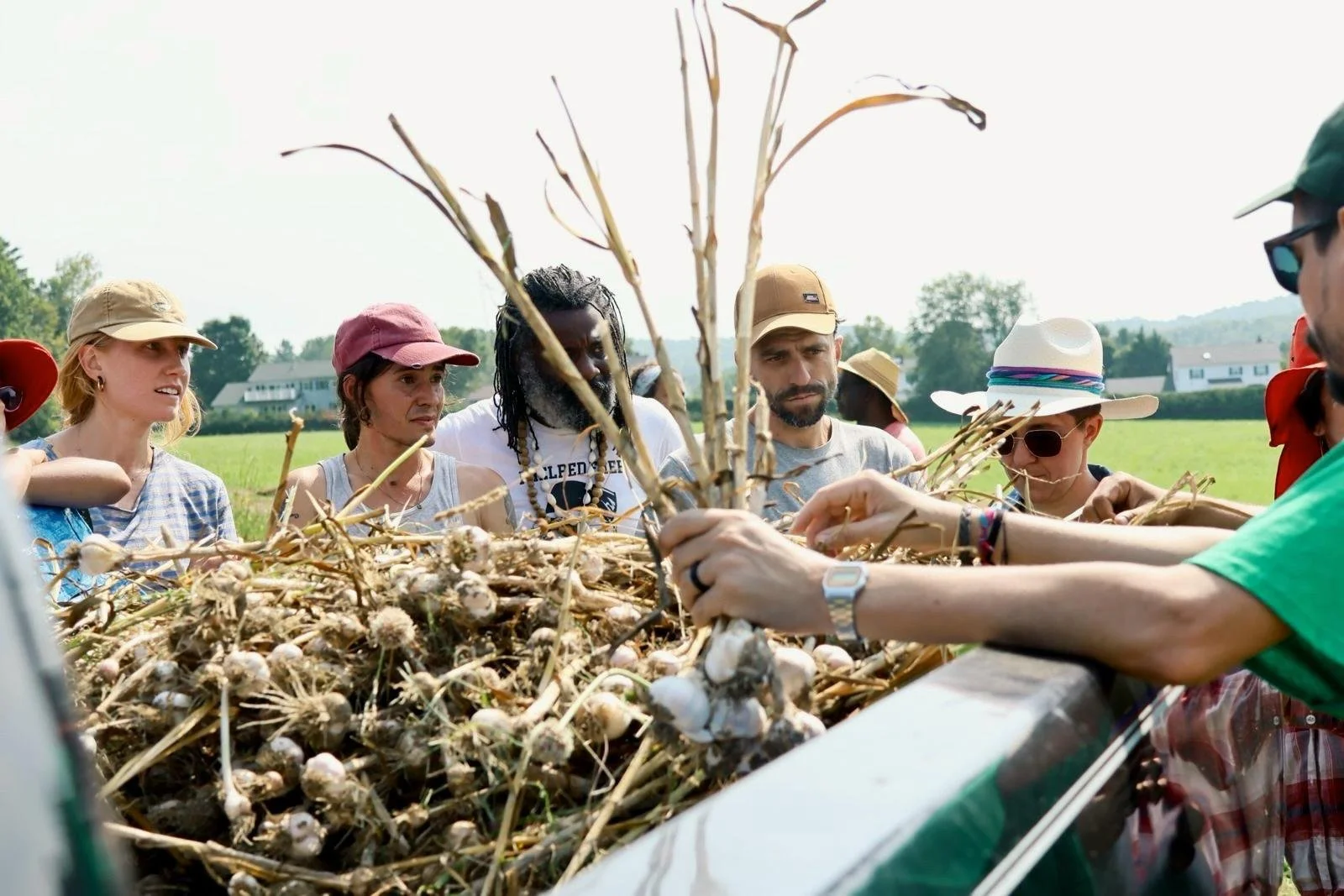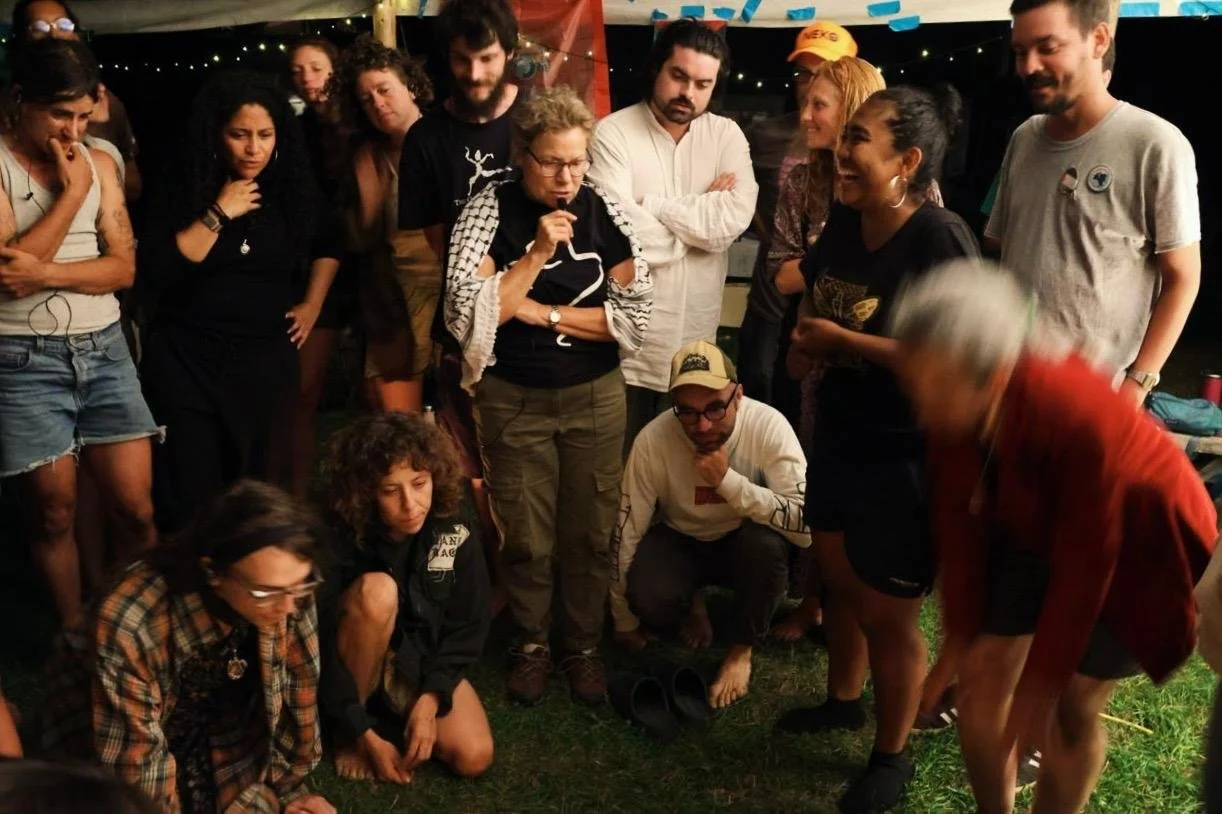9/23 Celebrating the 2025 Short Course in People’s Agroecology
This summer marked the third anniversary of the People’s Agroecology School of Vermont.
The school is rooted in Rural Vermont’s 40-year legacy of radical farmer organizing and follows in the lineage of the agroecological and political education developed by rural peoples’ movements across Latin America. This includes the Latin American Institutes of Agroecology (IALAs) that are spread throughout Central and South America.
To be radical is to grasp things by the root
The word radical comes from the Latin ‘radix,’ meaning ‘root’. At its core, the People’s Agroecology School is about getting to the root. The pedagogy of the People’s Agroecology School is designed to promote food sovereignty and build skills for critical analysis through generations of land stewardship and food production in the community. This requires getting to the root of the ways the landscape and its inhabitants have both changed and been maintained over many generations.
What does food sovereignty mean?
It means reclaiming memory and autonomy, teaching each other how to grow healthy food, building collective struggles for land reform, weaving non-patriarchal human relationships, honoring ancestral forms of knowledge, and caring for the Earth. Agroecology schools, such as ours, celebrate and strengthen traditions of resistance to the industrial food system. Instead of extractive models, they lift up complex, reciprocal Indigenous, peasant, and Black food and medicine systems. The pedagogy of people’s agroecology includes reflection of our lived experiences, those of the people around us, and other examples from around the world and our own history. This approach helps us relate to one another and the land, with historical perspective and in the present day.
Learning Through Movement, Organizing Through Pedagogy
The 2025 course centered on internationalism, not just as a concept, but as a living, joyful commitment to act in solidarity with each other and against Empire. Every political act is pedagogical, as it teaches those who participate important lessons about how political change occurs. Conversely, every pedagogical act is political, as we build containers to organize our ideas and methods based on intentional decisions and visions. We learn in movement – taking care of one another and the land while we also building power for systemic change. Our movement teaches us, and our participation defines our movement.
One of our primary tools that exemplifies this idea is the farm work brigade. Used globally as a form of resistance and mutual aid, the Vermont-based work brigades respond to direct farmer requests from the communities who feed us. During this year’s Short Course, we hayed, harvested garlic, flowers and berries, pruned apple trees, spread compost, pulled burdock and planted riparian buffers in a flood-prone area. By balancing labor with listening, we learned from participants in a recent La Via Campesina International Farm Work Brigade and explored a resilience tool kit developed by Vermonters in the aftermath of numerous years of flooding across the state. These exchanges of experience and knowledge are invaluable as we recognize our shared struggles and the need to deepen our resiliency and our reliance on each other.
Relationship to Healing & Connection
We also took time for healing and spiritual connection, recognizing that the struggle requires sustained energy and commitment, which in turn asks that we care for ourselves and others along the way. In this way, we mimicked the bees - working hard and ensuring that the hive is able to thrive.
This year’s course was named in honor of Bruce Kaufman, long time farmer leader, Rural Vermont member, and one of the founders of the People’s Agroecology School Collective. Throughout the week, several other mentors from the Collective led sessions on the history of social movement initiatives. We asked participants to reflect on the moments that have contributed to their political awareness, and what conditions they need to be able to continue along those paths. This cross-pollination and commitment to a shared political analysis remind us that learning and working together in community are necessary parts of the revolution we want to build.
In the spirit of internationalism, we also centered acute crises, including the genocide of farmers and land workers in Palestine and ongoing atrocities in the Congo, Sudan, Haiti and other regions around the globe. Those of us fighting for food sovereignty cannot stay silent when food is weaponized - when we are quiet, we are complicit. The week spent together reminded us of the power of collective action and contributed to a stronger base as we walk toward the future we know is possible.
_
The People’s Agroecology School of Vermont, an independently led project of Rural Vermont, is an effort started in 2022 that facilitates educational experiences to foster people’s self-transformation into land-based organizers and stewards of social, political and ecological change. The school is engaged in a continuing series of farmer-exchanges, political education events, courses, and work brigades. You can learn more about the school on this page–and take this brief survey to ensure that the offerings align with Vermont land workers who want to deepen their learning from each other and the land.
Co-written by members of the People’s Agroecology School of Vermont
In partnership with the University of Vermont Institute for Agroecology
…And more photos from the 2025 Short Course in People’s Agroecology
